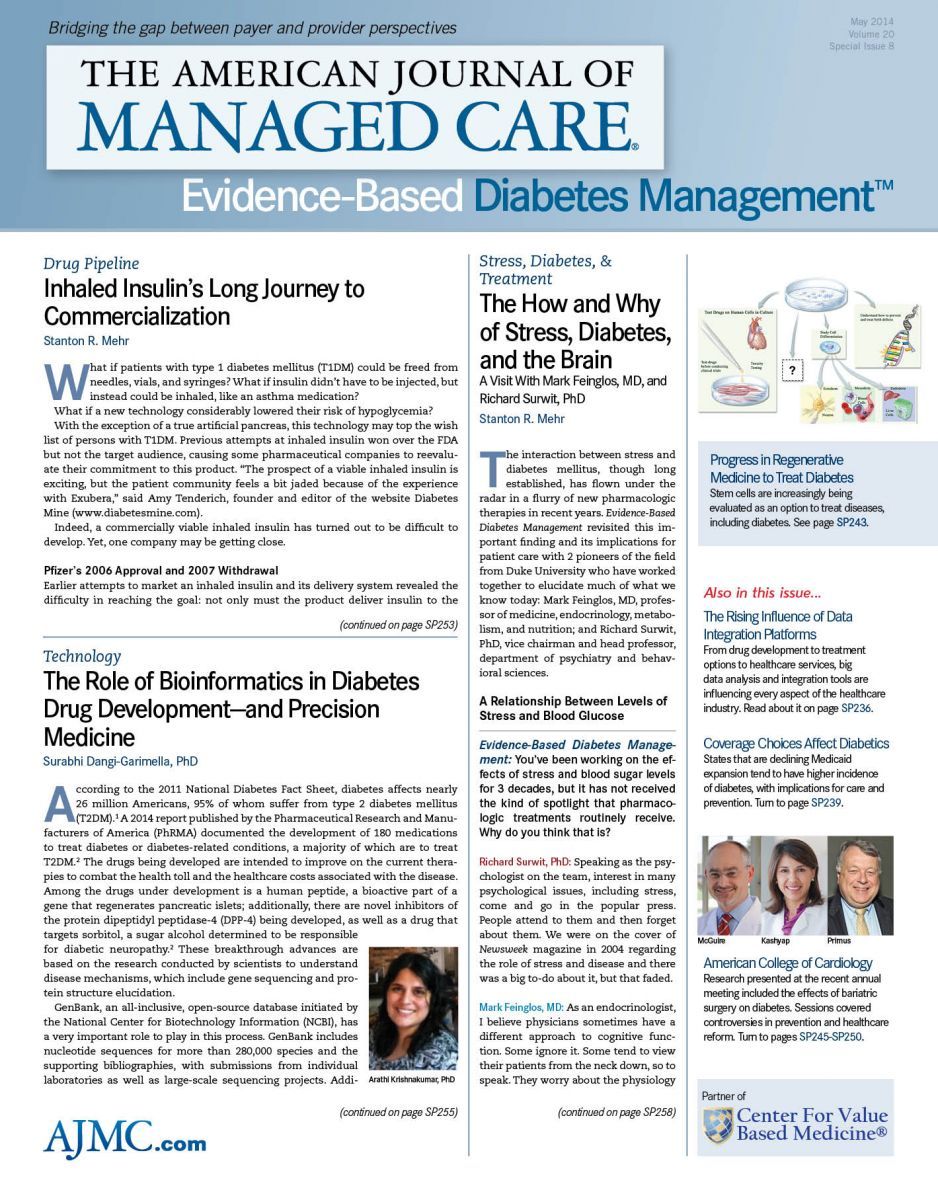- Center on Health Equity & Access
- Clinical
- Health Care Cost
- Health Care Delivery
- Insurance
- Policy
- Technology
- Value-Based Care
A Patient's Opinion of Unmet Need
What is the sweet spot for the inhaled insulin market? Evidence-Based Diabetes Management interviewed Manny Hernandez, president of the Diabetic Hands Foundation and @Ask Manny, about the market for Afrezza.
EBDM: What is the gap in care that an inhaled insulin might fill?
Hernandez: A very important number of people with type 2 diabetes have avoided “getting to” insulin for years... in no small part because it’s injected. I can’t blame them. I was misdiagnosed with type 2 diabetes back in 2002, and eventually correctly diagnosed as having type 1 (and had to start injecting insulin). It does change you: life is never the same after you have to start taking shots. When you know life without shots, it’s much harder to start them.
In the case of someone with type 1, there’s no option. In the case of so many people with type 2 disease, while there may be options earlier on, there can be a point where it may be ideal to include insulin as part of the treatment. But the “psychological insulin resistance” can be so strong that the person cannot get past it, getting essentially stuck in a place of poorer control, and potentially leading to complications.
This is where inhalable insulin can disrupt things. I do believe we can see a deep impact in terms of control. The 1 thing I look forward to seeing is that it can be affordable to patients who most need it; so another important element to consider is the reimbursement side of things...but that’s a whole other story.
If the inhaled insulin is just as effective as its injected counterpart, to me the fact that it doesn’t need to be injected makes it a very important option to offer to patients.
EBDM: If the FDA does approve Afrezza in July, how do you think patients will react?
Hernandez: If the drug is approved, it will still be a while before it is actually available to patients broadly. Distribution can be challenging. However (assuming it’s approved), once it’s available, the people at MannKind will need to spend important time and energy raising awareness around the new treatment option, because it’s not going to simply be a new insulin, but an altogether new type of insulin delivery that doesn’t involve injections.
I think an important percentage of patients (especially people with type 2 diabetes) will ask their physicians to look into this. I certainly hope physicians listen...but first let’s see what happens in July.

Telehealth Intervention by Pharmacists Collaboratively Enhances Hypertension Management and Outcomes
January 7th 2026Patient interaction and enhanced support with clinical pharmacists significantly improved pass rates for a measure of controlling blood pressure compared with usual care.
Read More
Exploring Pharmaceutical Innovations, Trust, and Access With CVS Health's CMO
July 11th 2024On this episode of Managed Care Cast, we're talking with the chief medical officer of CVS Health about recent pharmaceutical innovations, patient-provider relationships, and strategies to reduce drug costs.
Listen
Linking Data to Determine Risk for 30-Day Readmissions in Dementia
December 22nd 2025This study found that certain characteristics in linked electronic health record data across episodes of care can help identify patients with Alzheimer disease and related dementias at high risk of 30-day readmissions.
Read More
Performance of 2-Stage Health-Related Social Needs Screening Using Area-Level Measures
December 19th 2025Limiting health-related social needs screening to lower-income areas would reduce screening burdens; however, this study found a 2-stage screening approach based on geography to be suboptimal.
Read More

